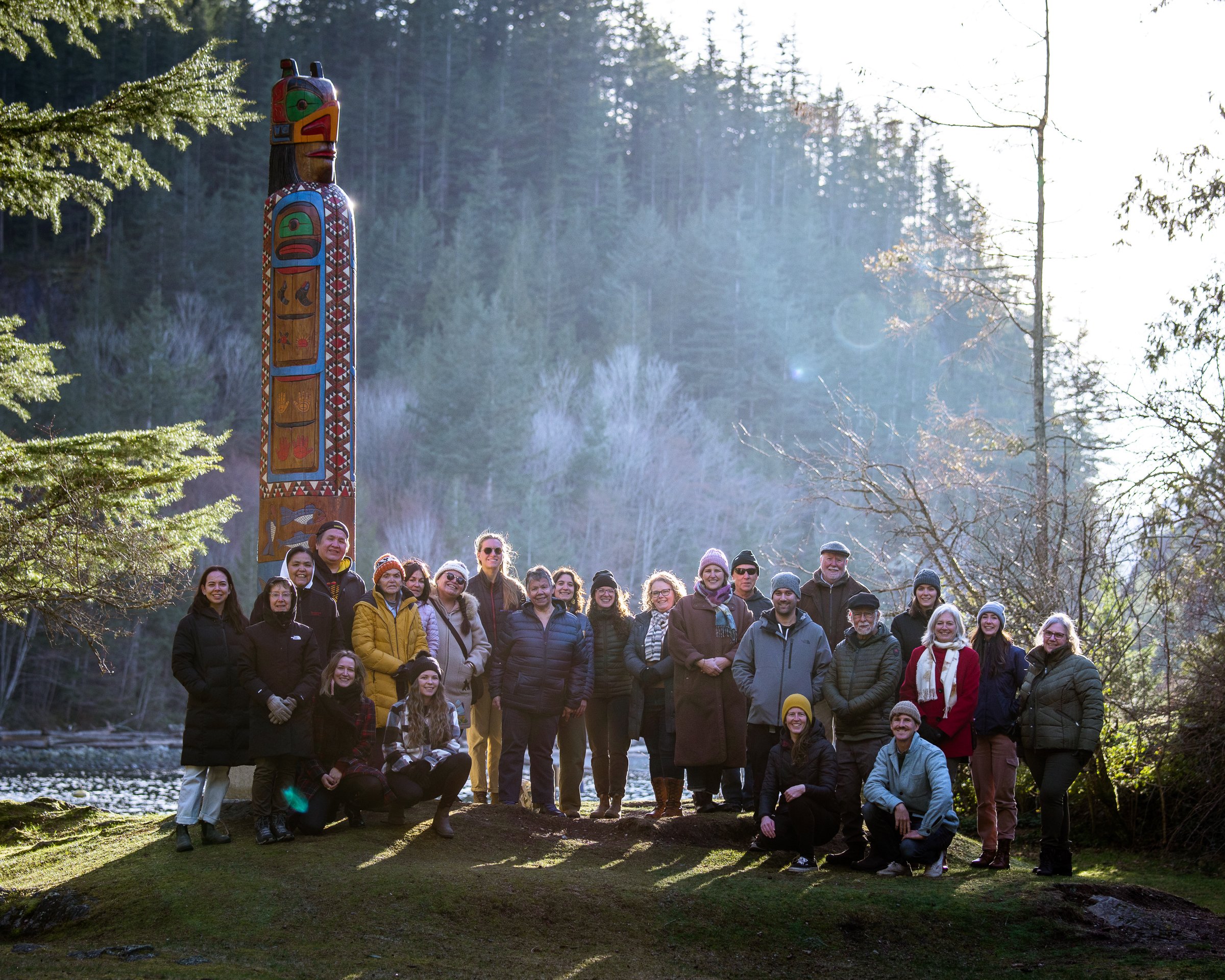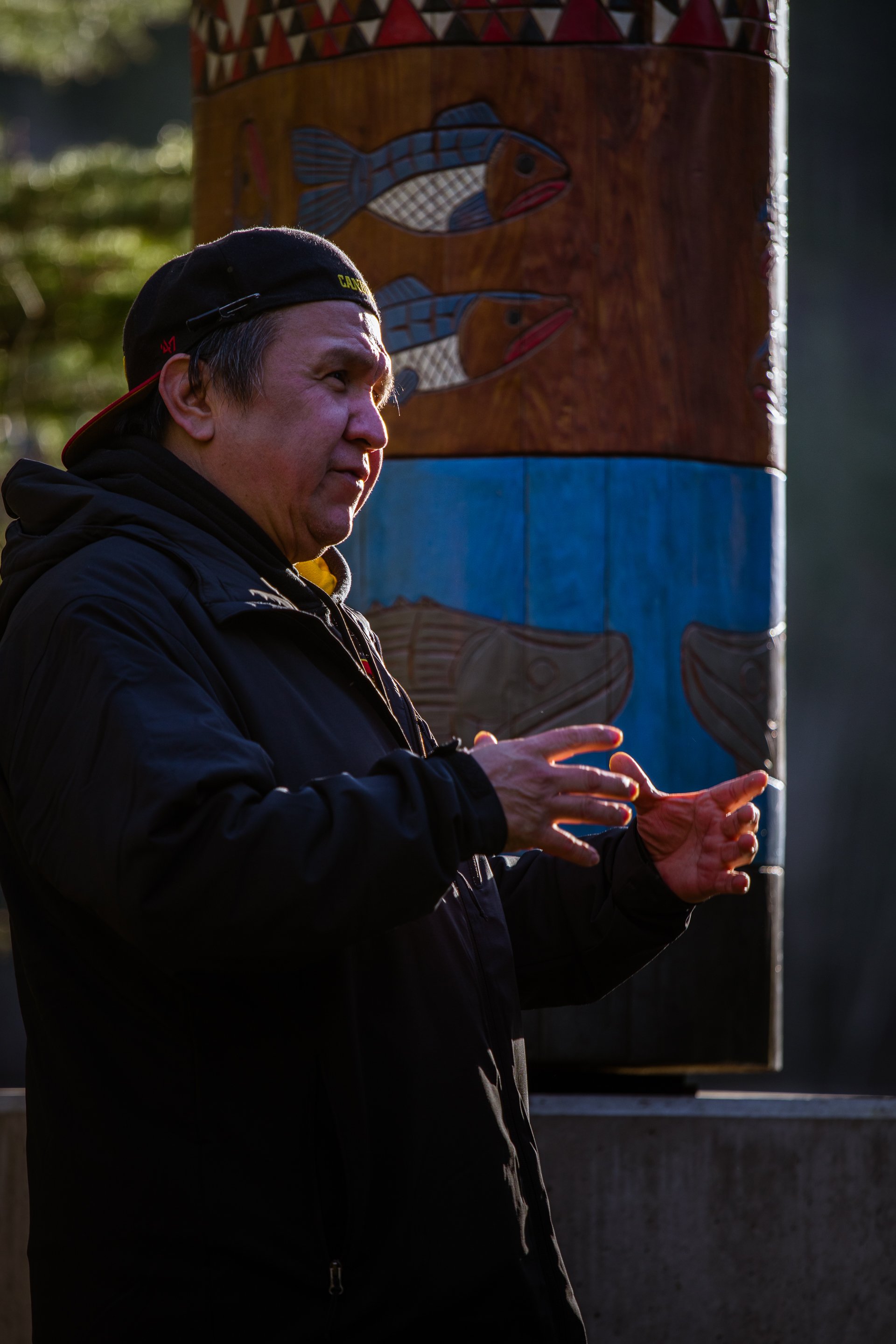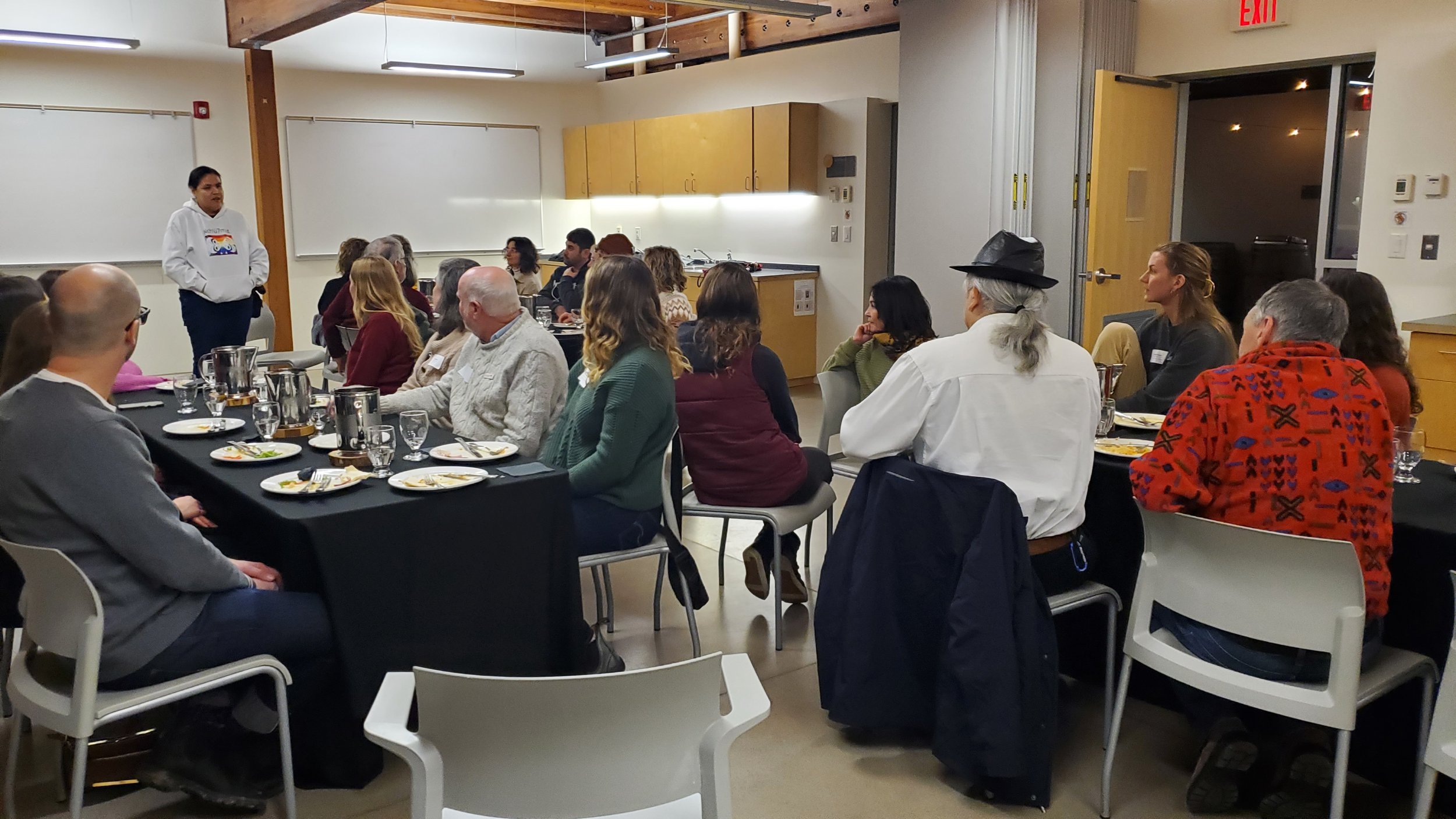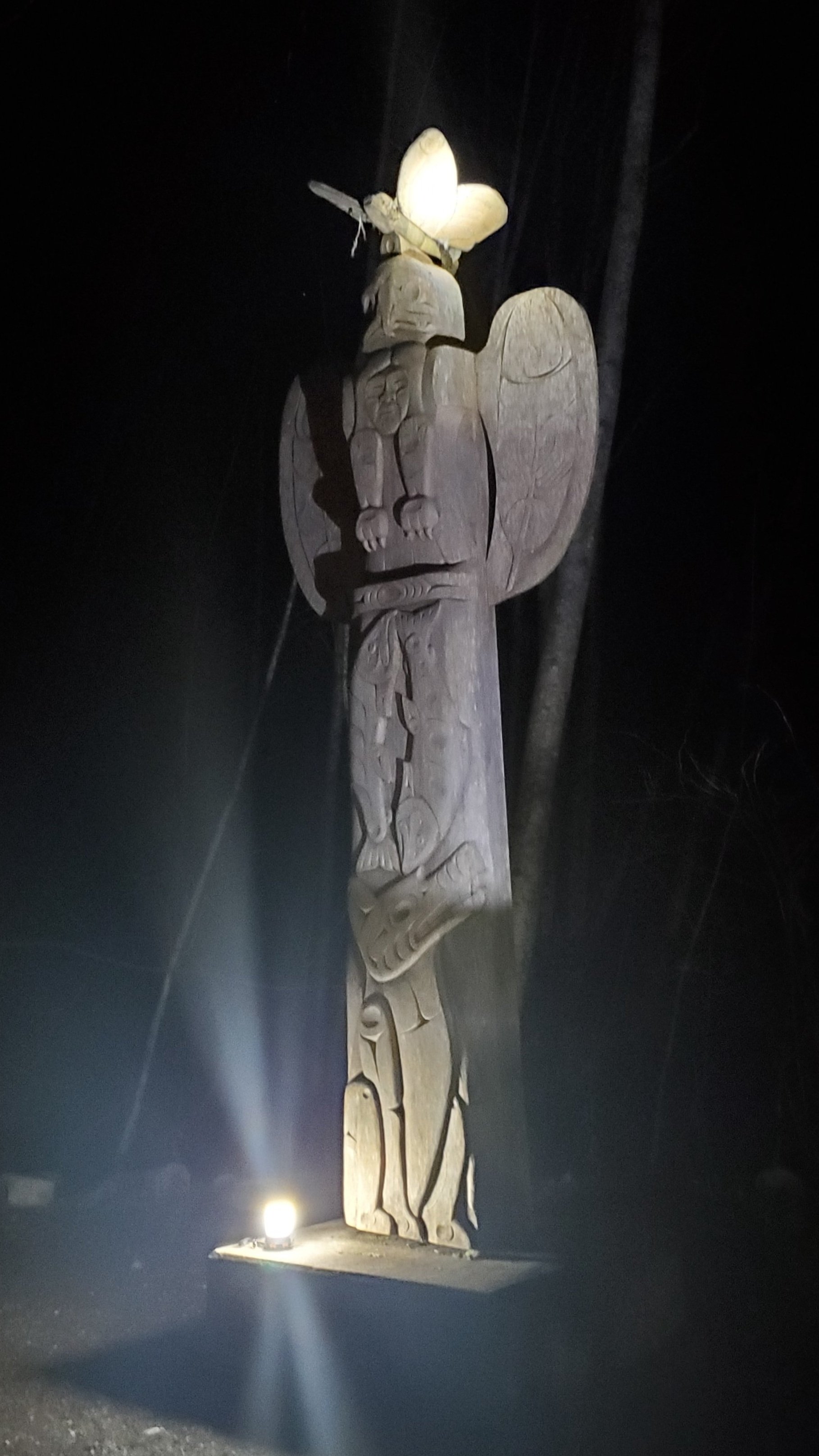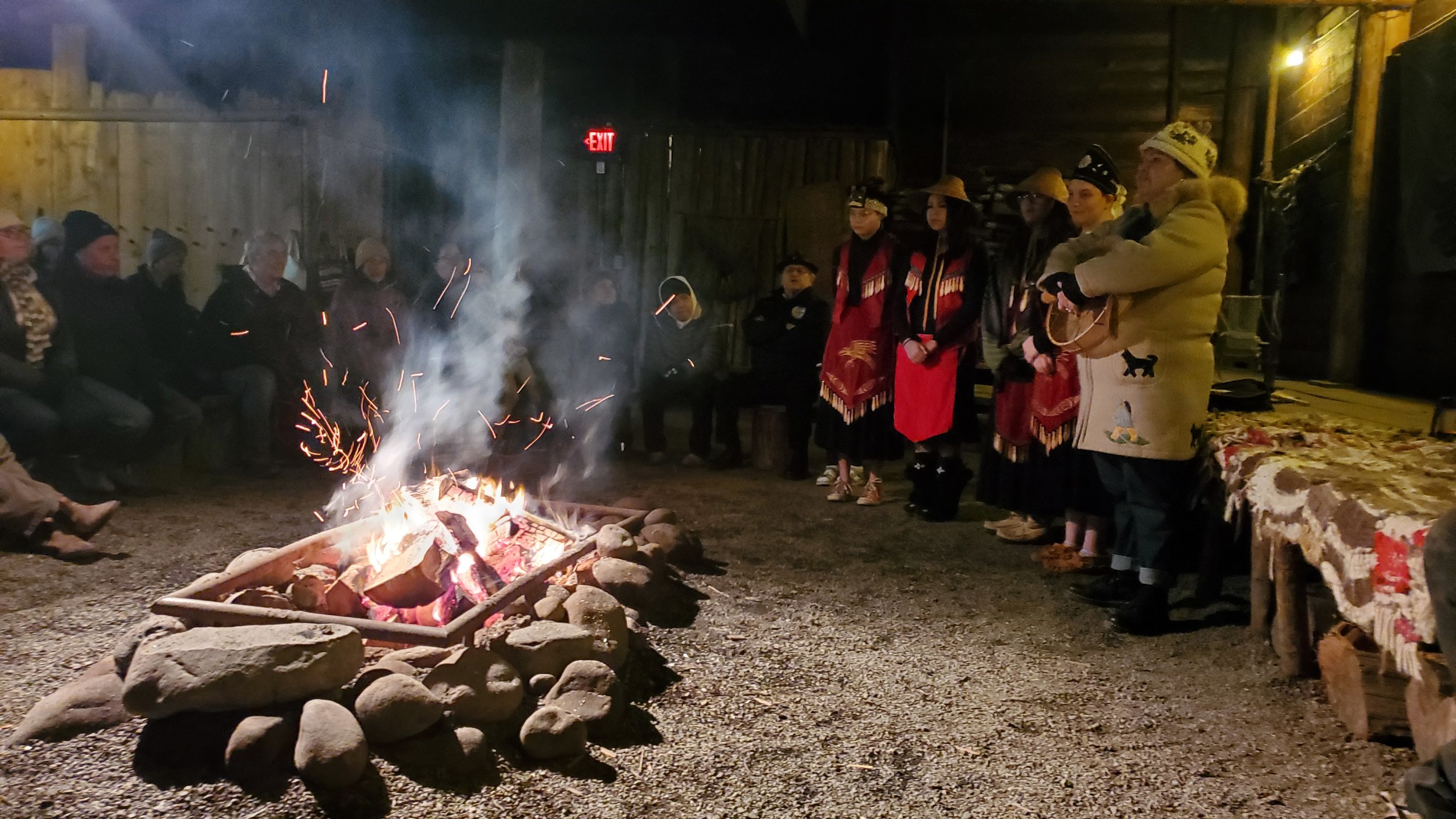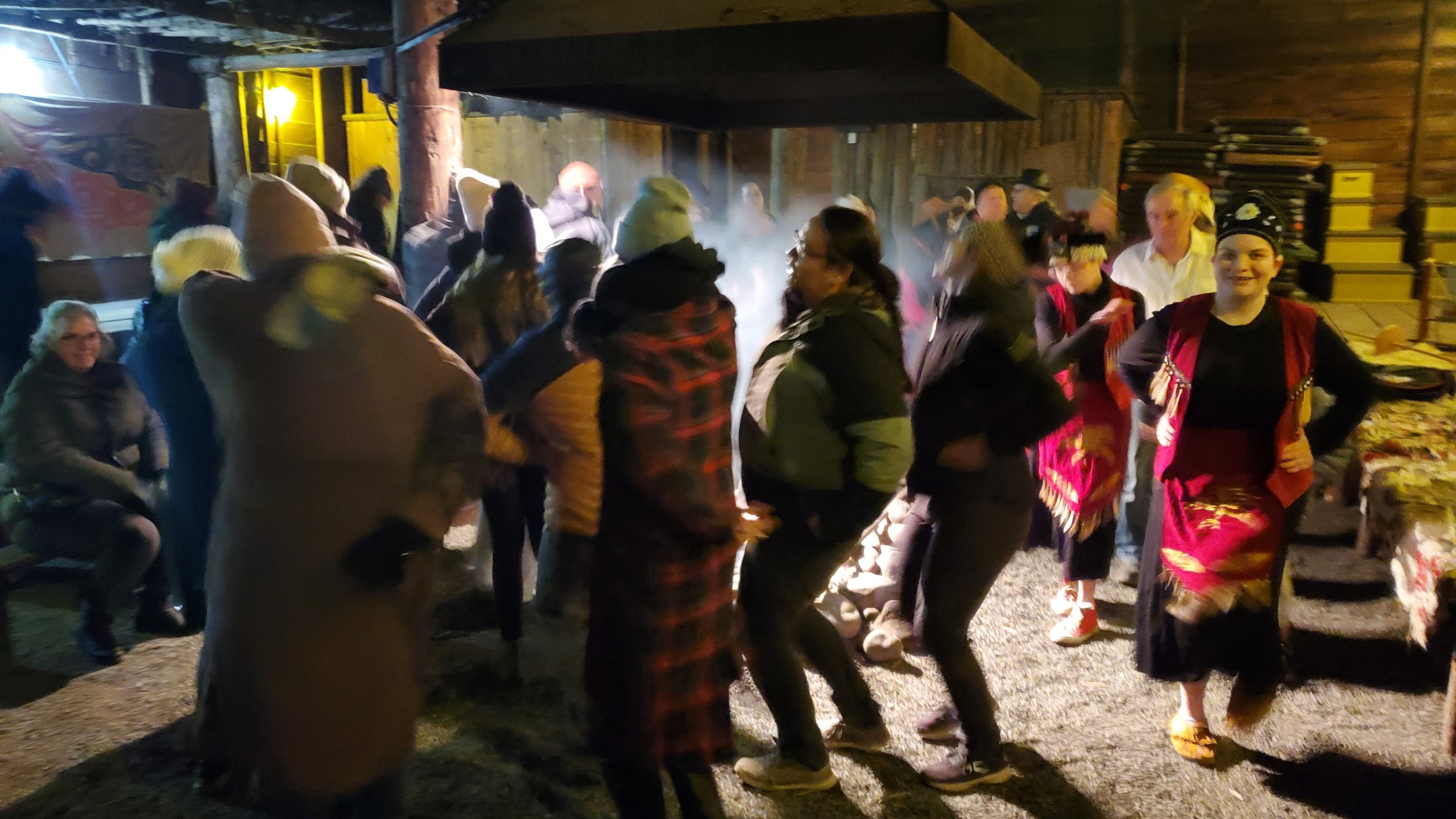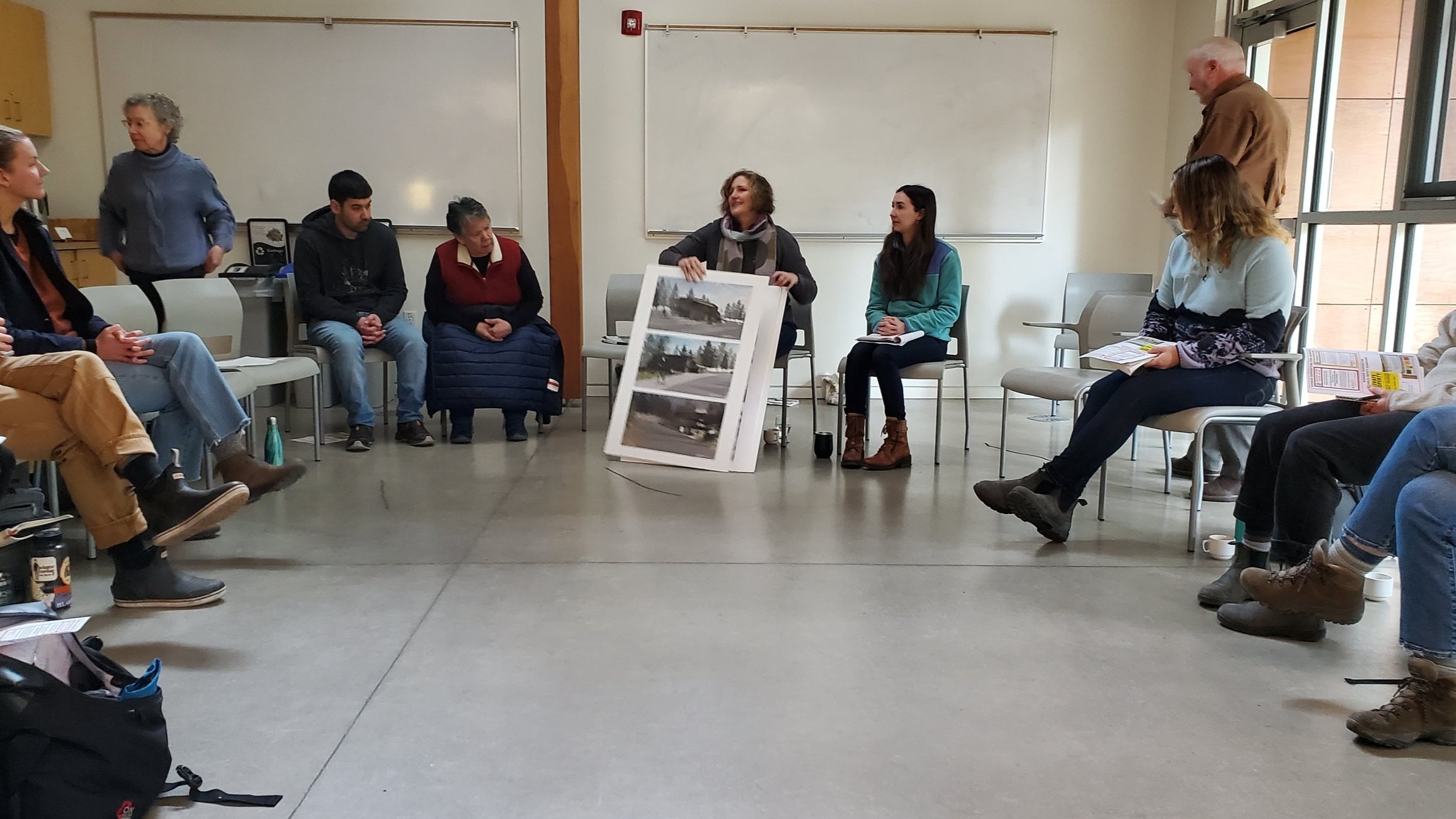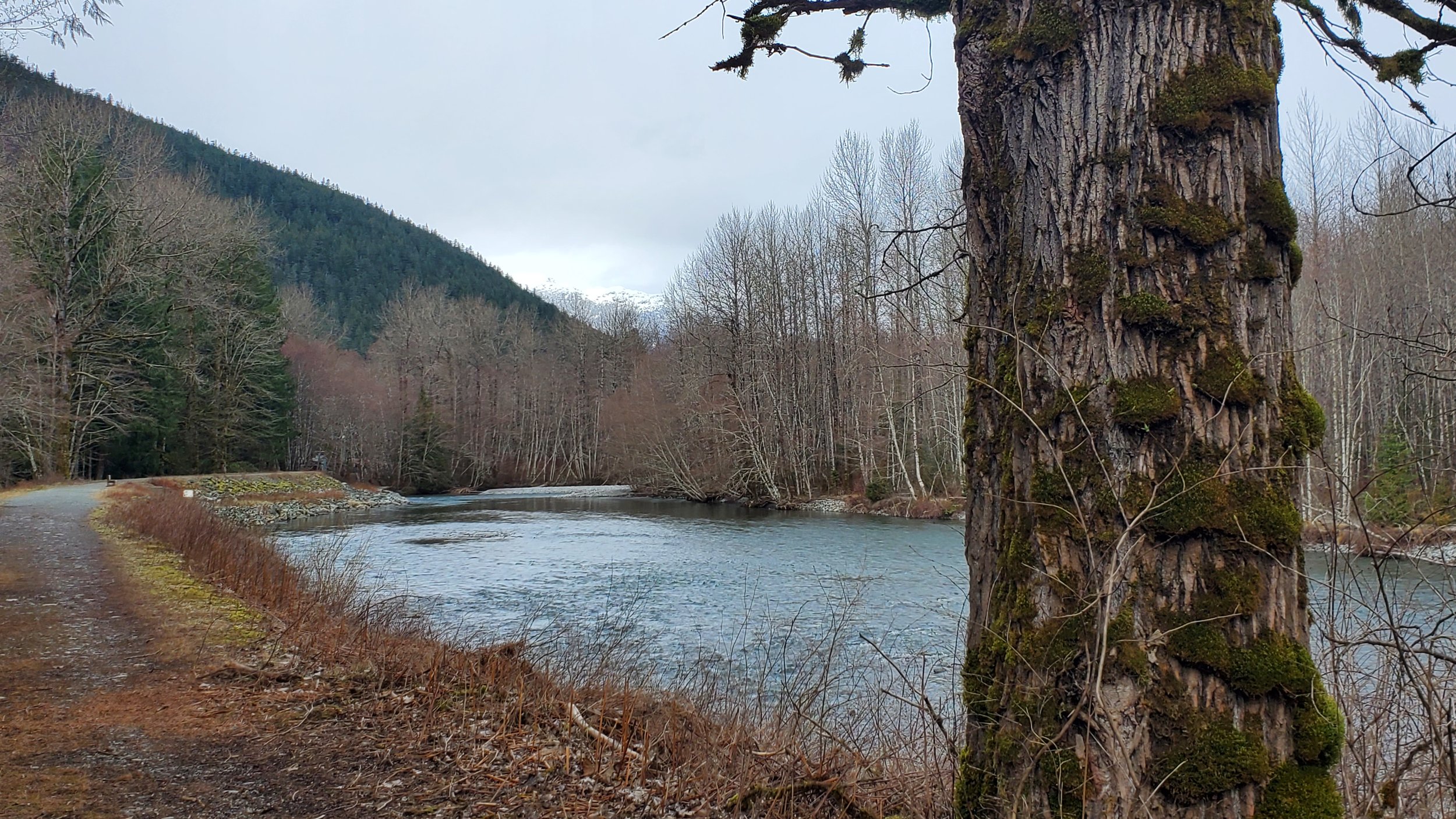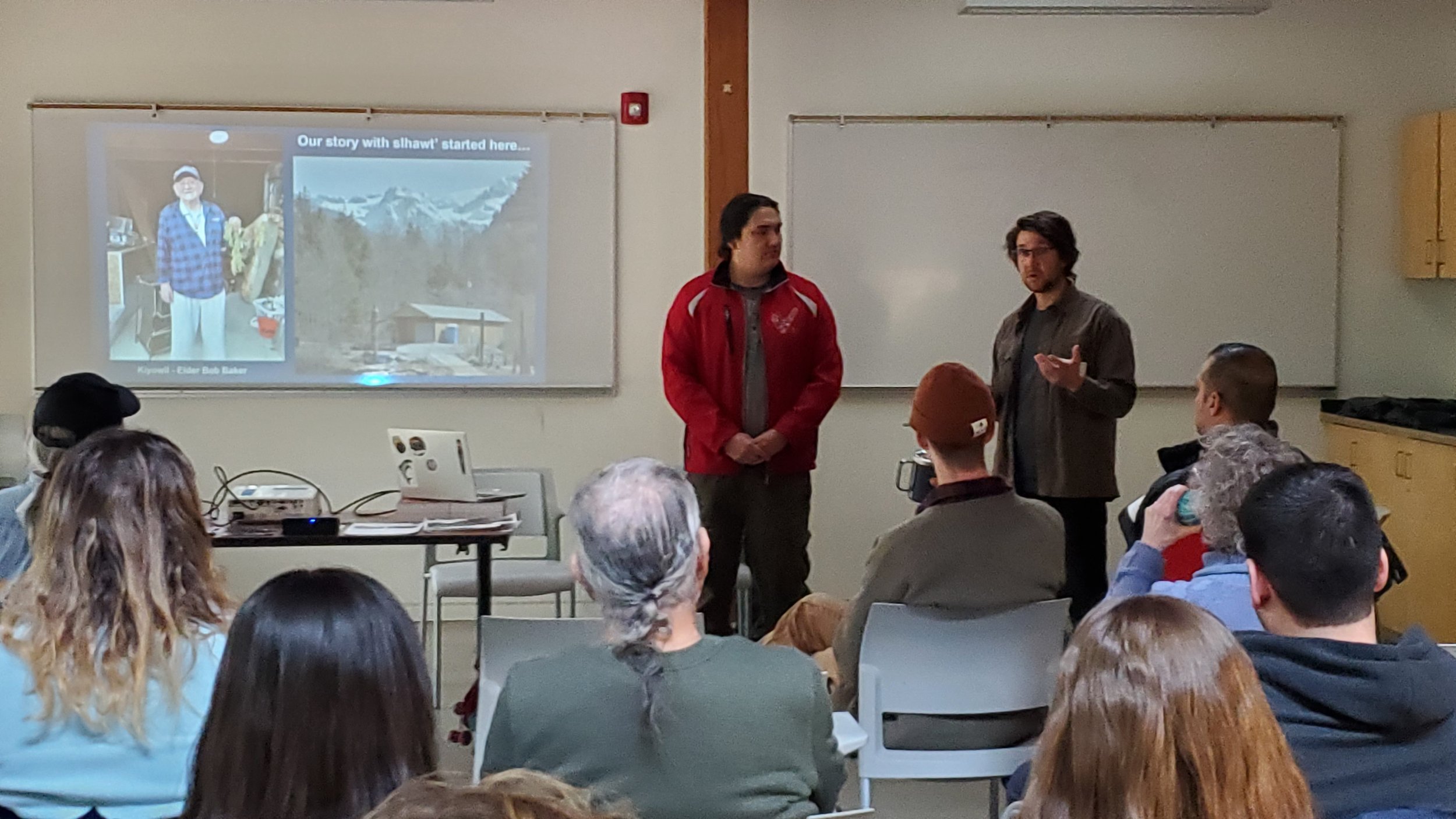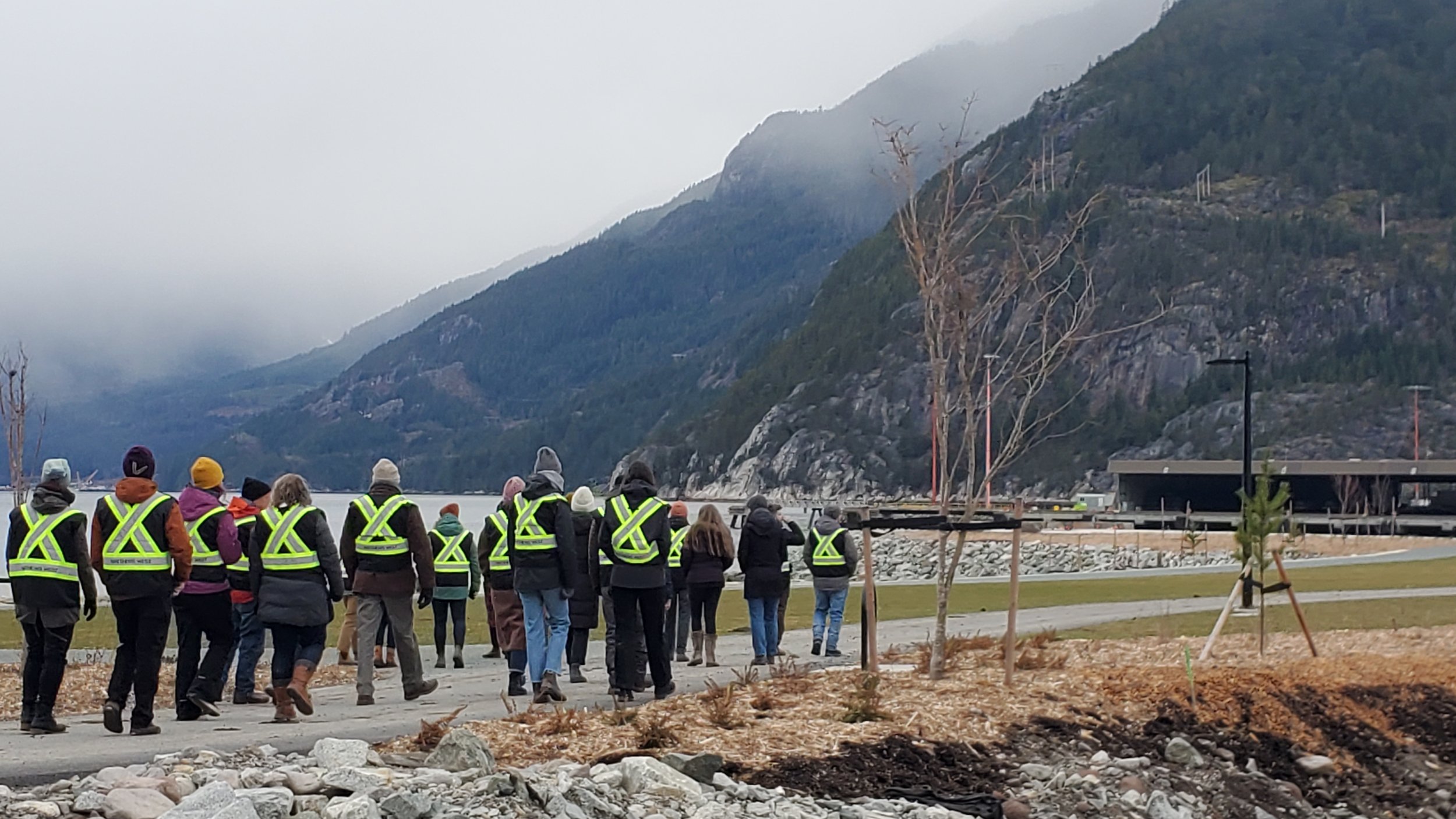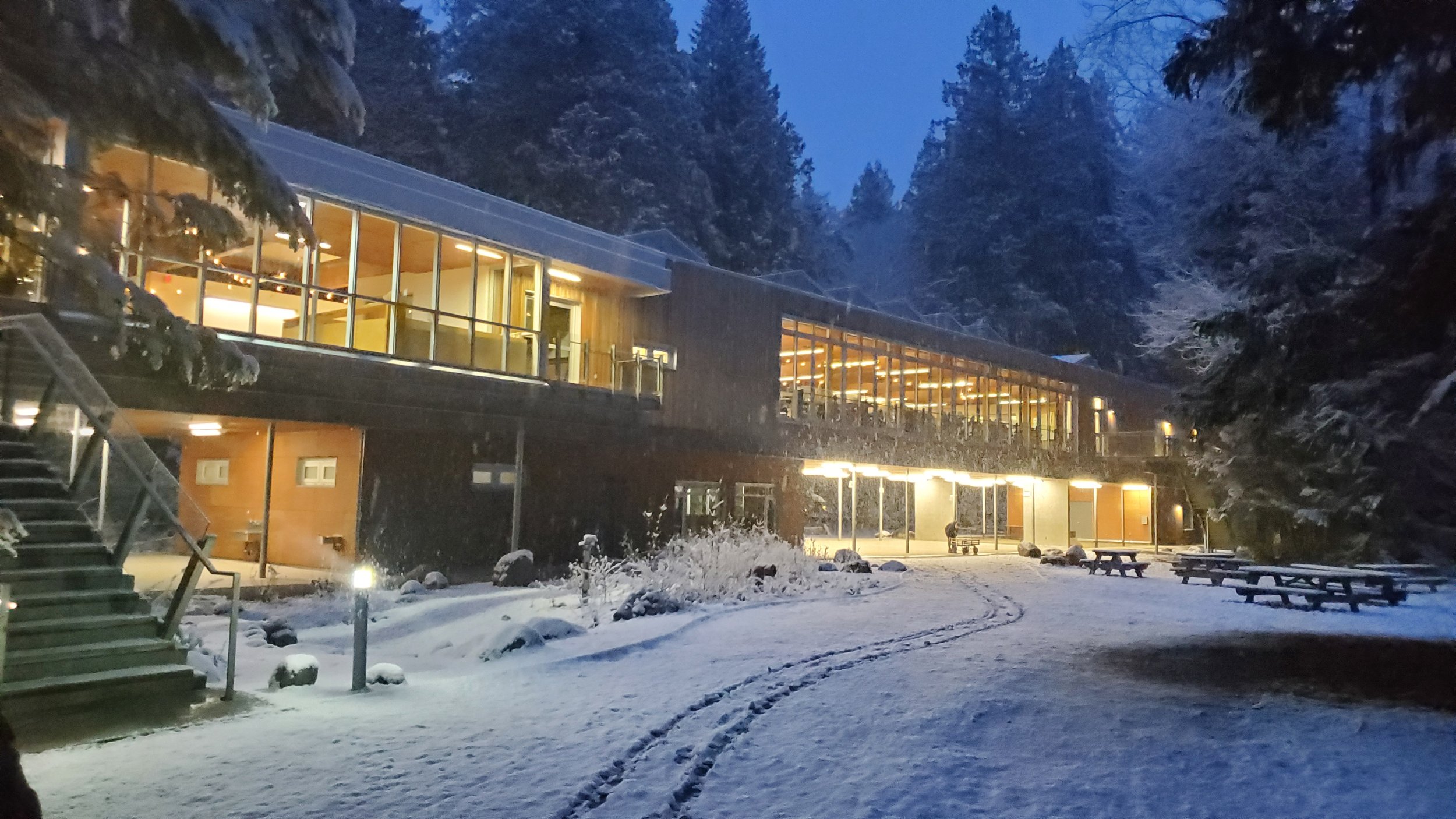Hosting the BC Biospheres' Gathering
The sun was shining for our guests from the Canadian Commission for UNESCO, Mt. Arrowsmith Biosphere Region, and the Clayoquot Sound Biosphere Region on Monday, February 26th. We met at Porteau Cove Provincial Park for the official welcome to the Sḵwx̱wú7mesh Ayáy̓ch (Squamish Territory). Charlene Williams and pole carver Delmar Joseph started us off in a very meaningful way with the story behind the details of this welcome pole erected in 2023. Known as Xwáw̓chayay, meaning ‘place of little sturgeon’ (a species we have not seen in Howe Sound for many years), the pole’s designs speak to the past, present, and the hope for the future, a theme that underscores the work of Biosphere Reserves around the world. The sun was in just the right place for photographer Kieran Brownie on this brisk afternoon.
The purpose of the gathering was to share knowledge with a focus on Indigenous knowledge and shared stewardship of the lands and waters in our Biosphere regions. We are three of nineteen UNESCO Biosphere Regions in Canada, and the event was funded by the Canadian Biosphere Reserve Network and Environment and Climate Change Canada. Leveraging knowledge between our organizations is how we build capacity and understanding. Hosting visitors to our region gave us all the opportunity to reflect on the good work underway with our partners across the Salish Sea—and to be reminded of just how awesome a place this is.
Left back: Charlene Williams, Delmar Joseph, Diane Mitchell, Janessa Dornstauder, Ian Winn, Ruth Simons, Chief Michael Recalma, Mica Anguita, Geraldine Manson, Rebecca Hurwitz, Catherine Watson, Courtney Vaugeois , Nicole Gerbrandt, Bob Prenovost, Sharon Racalma, and Mandy Hobkirk. Below left to right: Graham Sakaki, Colin Robinson, Rachel Munger, Zoe Compton, Kyla Seward, Cathy Jenkins, Jenica Ng-Cornish.
The Cheakamus Centre in Brackendale served as our meeting place for two evenings. The Blue Shore Environmental Learning Centre provided the ideal setting for our discussions. We enjoyed the healthy, delicious meals that many lucky students get to taste when they stay at the Centre. Our evenings were spent around the fire in the Skw-une'was Longhouse. We enjoyed the dance group entertaining us with stories, once again making the connection to the wildlife that inhabit these lands to life.
Guests from the Squamish area joined us at differing times, including Mayor Armand Hurford, and Squamish Nation staff. Sḵwx̱wú7mesh Úxwumixw member Randall Lewis provided many personal and historical stories about the lands and the Cheakamus River (on which the Cheakamus Centre property is located on), His insight and knowledge was special for all of us who continue to learn about the extensive historical use of these lands, and we are grateful to him for sharing this with us.
A special presentation was provided by Matthew Van Oostdam and Jonny Williams, representing the Átl'ka7tsem/Howe Sound Marine Stewardship Initiative. We were all delighted by the stories of Searching for Slahw’t over the past four years. Biosphere Regions are all about learning, experiencing out on the land and water, education, reviving culture and passing along for future generations.
In the afternoon, staff at Matthews West hosted us for a tour of Sp'akw'us Feather Park, with a focus on the restoration of habitat at the former “Nexen Lands” in the Squamish estuary. The industrial nature of this site caused extreme mercury pollution until remediation occurred in the early 2000s. The park is still under construction but we had a preview of the new parkland that is incorporating marsh restoration, Sḵwx̱wú7mesh Uxwumixw art, cultural plant and root gardens, and a new playground designed by the students at St'a7mes School, which will incorporate Sḵwx̱wú7mesh stories.
Winter then returned with guests experiencing a snowy evening back at the Cheakamus Centre. The final morning was spent in the theater at the Squamish Adventure Centre, sharing films about reconciliation stories, and Ellika Cairns of the Átl'ka7tsem/Howe Sound Marine Stewardship Initiative sharing the Unchartered Waters film.
With our colleagues headed back home after this gathering, we look forward to future learning and collaborations, and to next year’s gathering to be hosted in the Mount Arrowsmith Biosphere Region.

